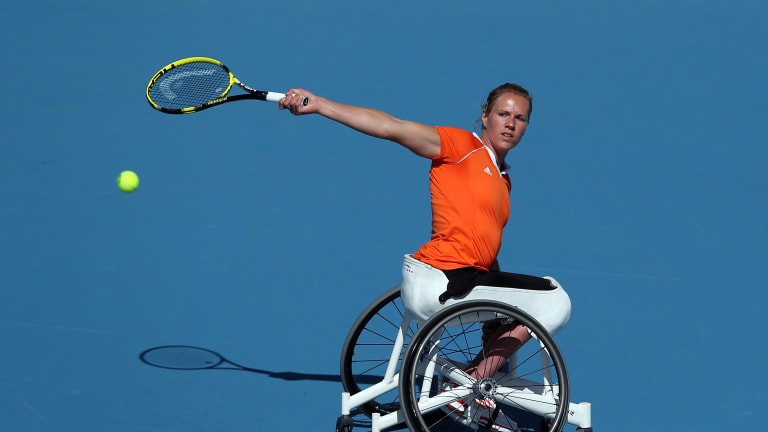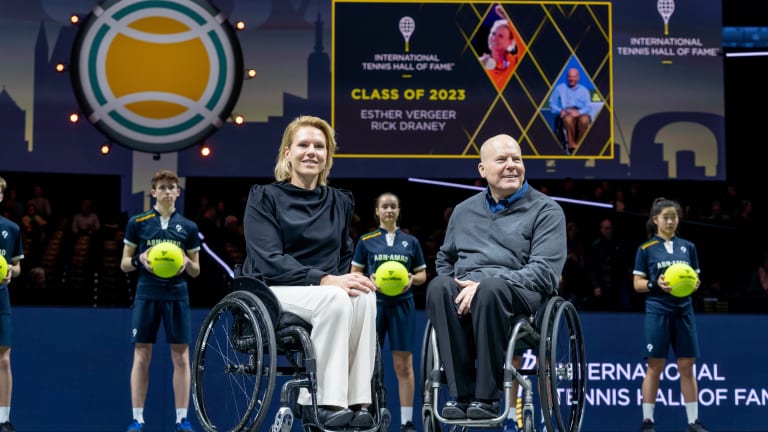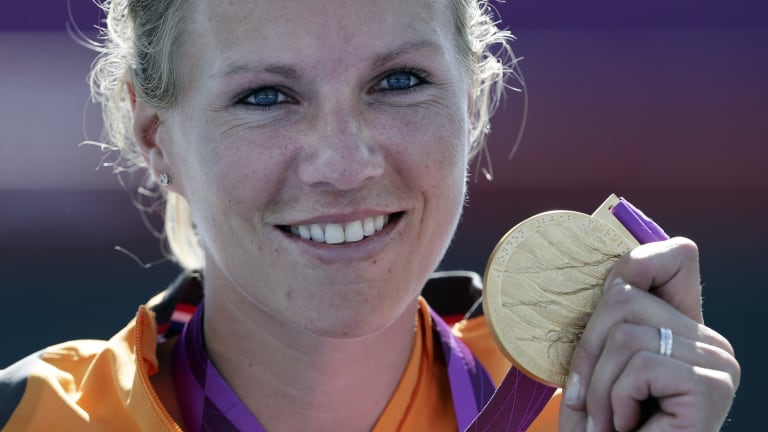Tennis.com Interview
Hall of Fame Rewind: Our conversation with Esther Vergeer, who ended her career on a 470-match win streak
By Aug 07, 2016Tennis.com Interview
On the mend, and back to school—in the classroom and on the court—for Jenny Brady
By Apr 22, 2024Tennis.com Interview
The Lindsay Davenport Era of Billie Jean King Cup begins
By Apr 12, 2024Tennis.com Interview
Simona Halep is happy to provide an accountable explanation, while ready to move forward
By Apr 12, 2024Tennis.com Interview
Vlada Hranchar: The Journey of a Prodigy
By Apr 04, 2024Tennis.com Interview
Happily married, a calmer, quieter Anastasia Potapova aims to make noise in Indian Wells
By Mar 11, 2024Tennis.com Interview
Rock and roll fan Ugo Humbert rocking out harder than ever with the band behind him
By Mar 11, 2024Tennis.com Interview
Alex Michelsen comes full circle at Indian Wells
By Mar 07, 2024Tennis.com Interview
For Danielle Collins, saying goodbye in 2024, Indian Wells will always be significant
By Mar 06, 2024Tennis.com Interview
Holding Court with... Michael Russell, coach of Taylor Fritz with an unbreakable poker face
By Feb 26, 2024Tennis.com Interview
Hall of Fame Rewind: Our conversation with Esther Vergeer, who ended her career on a 470-match win streak
Few players have dominated a sport the way this wheelchair champion did; this year, she'll be enshrined in Newport.
Published Aug 07, 2016
Advertising
Advertising

When people see wheelchair tennis for the first time, they are pleasantly surprised that we hit the ball hard, maybe not 200 miles per hour, but harder than most able-bodied people.
© 2012 Getty Images
Advertising

Vergeer and Draney were celebrated during a special ceremony in Rotterdam Saturday.
© Marleen Fouchier
Advertising

The Greatest of All Time? For Vergeer, it's not even a question.
© AP